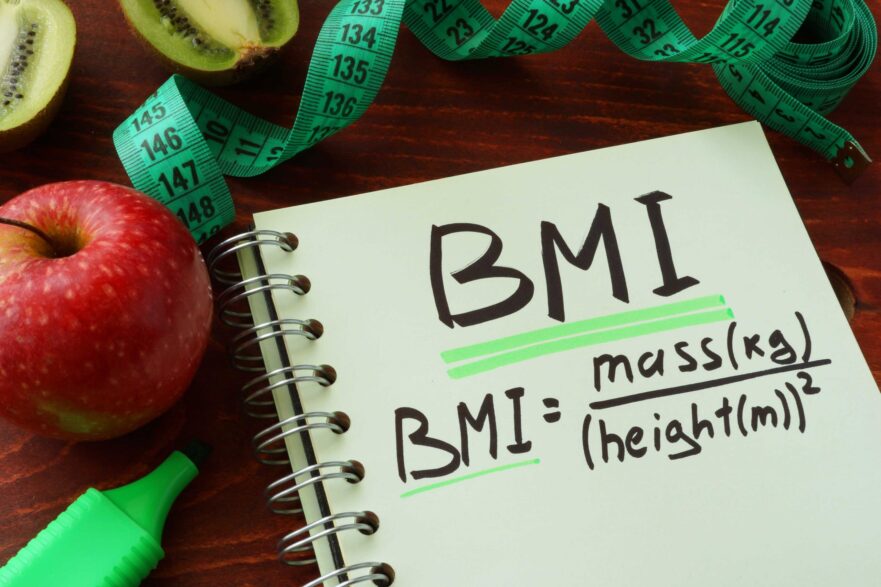Health is number one on the agenda:
Everywhere you look there are experts giving advice on how to improve your health. Magazines, TV shows, movies, online articles etc. aim to grab our attention 24/7, 365 days a year. The most common way used for the general public to outline their health is Body Mass Index. Body Mass Index (BMI) is a calculation used by the NHS and others to tell you where your health stands. It provides a scale which takes into account your height and weight. Designed to provide a number which falls into a category of health – ranging from being underweight to heavily obese.
According to the NHS , a normal BMI ranges between 18.5 and 25; under 18.5 is considered underweight; 25 to 30 is considered overweight and a BMI over 30 is considered obese. BMI is the most general way for us to see if we’re healthy or not, at least physically speaking. But is BMI the best way going forward for us to define our general health? The article is to suggest Body Mass Index does not define general health.
The benefits of a BMI:
In general terms, BMI is a predictor for the likelihood of potentially developing a range of physical conditions. With the constantly growing population, there is also an uptick in the percentage of the population considered to be obese and overweight. There are many common diseases such as diabetes, arthritis, cancer, hypertension, sleep apnea etc. directly caused by excess weight. Thus, having a general understanding of your BMI can help with avoiding/preventing those type of diseases as best you can. The World Health Organisation (WHO) states three million people die annually as a direct cause of being overweight and obese.
With how simple it is to find out your BMI. It provides a quick and easy way for anyone to get a gauge on their health. It is much more simpler, less time consuming and cheaper than other ways to understand your health. For example, trying to get a GP appointment, paying for body scan tests to find out body fat percentages or having to be knowledgeable in any wacky magical formulas online. However, there are also limitations that come with BMI, especially for wanting to know more about your general health.
The limitations to BMI:
Firstly, the main argument used against BMI as a complete determinant of health is what it does not include. BMI does not factor in high muscle mass or having a high bone mineral density when giving you a ‘Health Score’. Even though having a high muscle mass or a higher bone mineral density compared to someone more sedentary is a positive indicator of health. These things count towards raising someone’s BMI score. Simply according to BMI, many of the most famous and popular athletes, movie actors, celebrities etc would be technically obese or overweight.
Additionally, according to Harvard Medical School, BMI may also not be an ideal measure for the elderly or children. It is not completely accurate in determining the levels of fat in the body and how it is distributed in the body.
Searching for the perfect weight:
More so, does BMI suggest there is such thing as an ‘ideal weight’? Is health as simple as a number or does it need more complexity then that. If someone feels physically better or mentally better with their bodies and shape, is a BMI score that could possibly suggest otherwise more important than how you feel. BMI is useful for its preventive nature – being able to help someone understand if they need to make changes in their life to be healthier. However, it can not tell the future. You can be overweight or underweight according to BMI but that does not mean automatic doom. Taking out extreme levels of being underweight or overweight, there are many other factors that going into the likelihood of you not feeling healthy.
This means, if you feel less stressed or more confident at a BMI outside the ‘normal range’ but you exercise regularly and eat a balanced diet etc. then maybe that is your normal/healthy range specific to you. BMI is great as a secondary tool instead of a tool that should dictate how you view your body.
What is important for measuring health:
BMI is both good and bad. There are pros and cons, but overall it is useful as one of many tools in understanding your health. What should be most important for our health is how we feel not just numbers and tools. Can we walk up the stairs without being out of breath? Are we able to reach down to grab things from the floor without pain etc. Perfect health does not exist. Everything you do should be specific to you and how you feel.
This is important in the current climate we live in – social media has distorted how we should all feel about ourselves and what bodies should look like. We all unintentionally follow the appearance of others to define our health. If we all compare ourselves to Thor in the movies and Times magazines sexiest people, we will never feel healthy. But, health is so much more! Our choices decide how healthy we are not BMI or any other tool used. Nevertheless, you can know your BMI if you want to.

